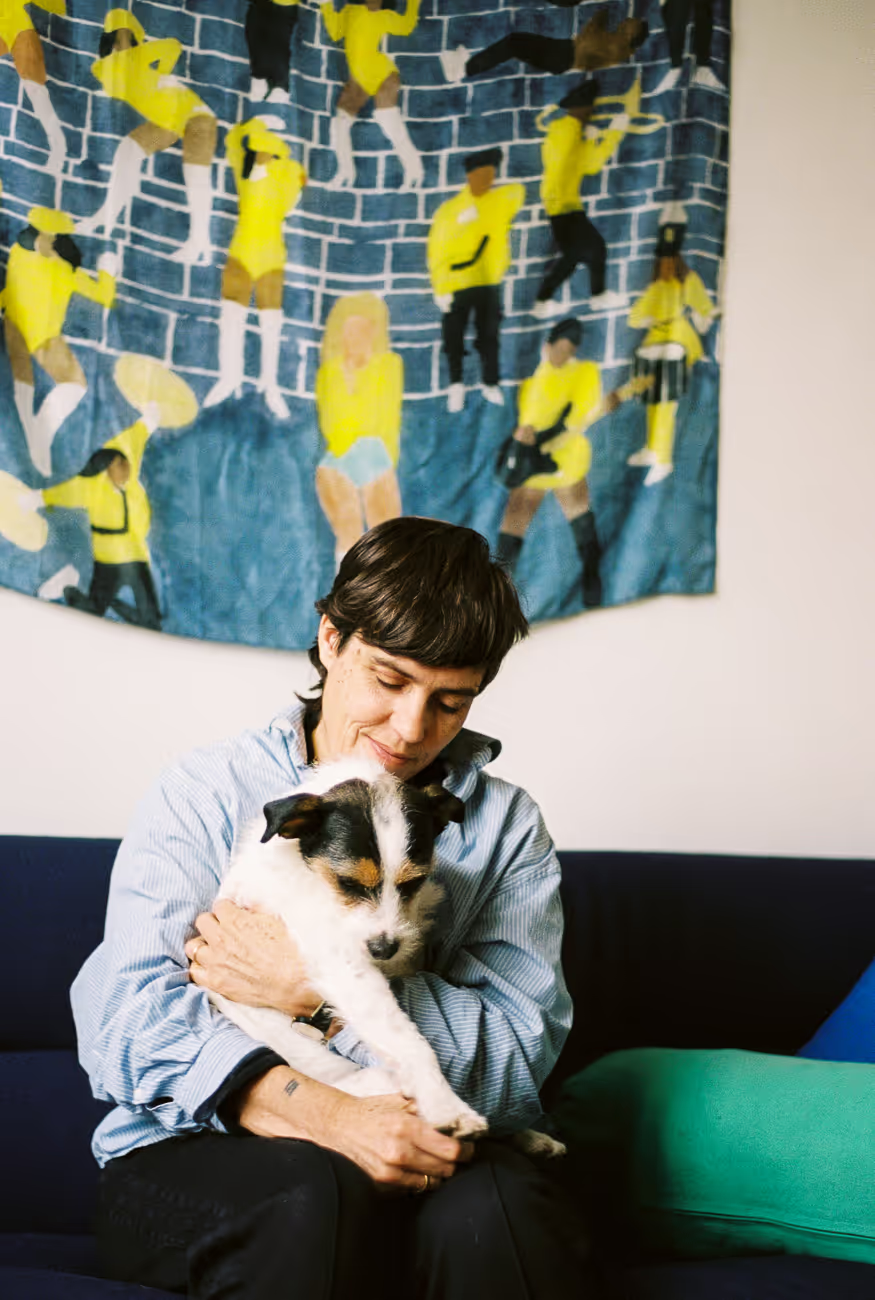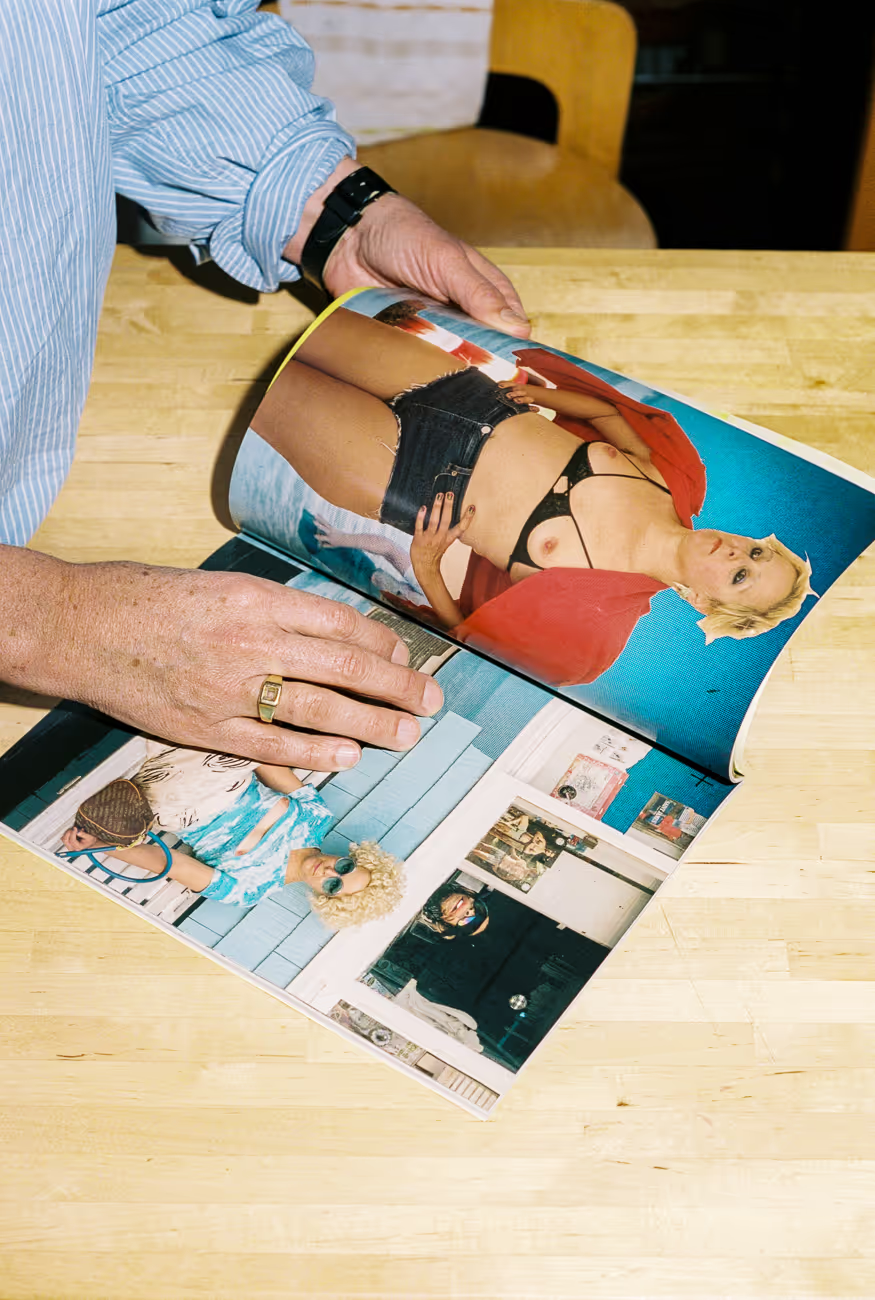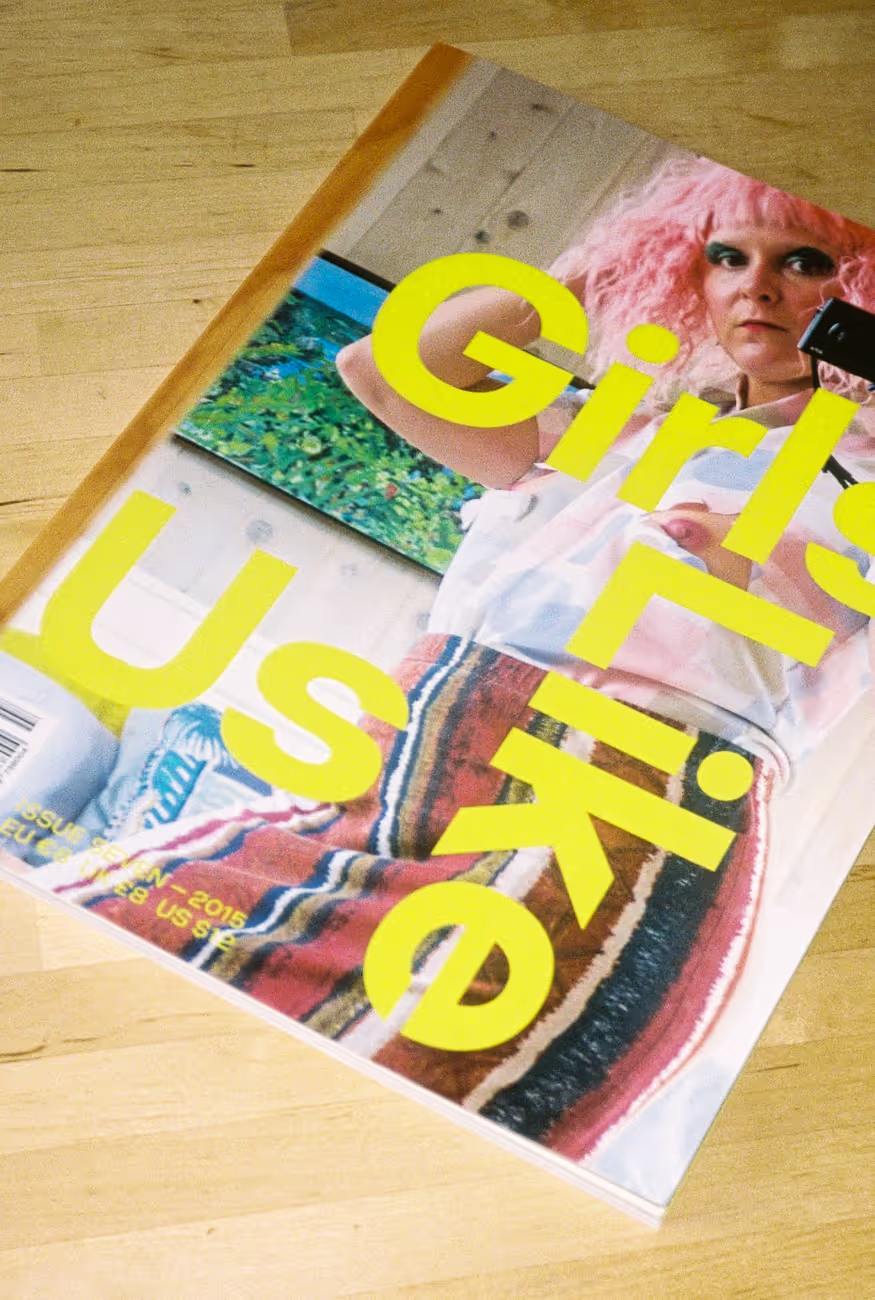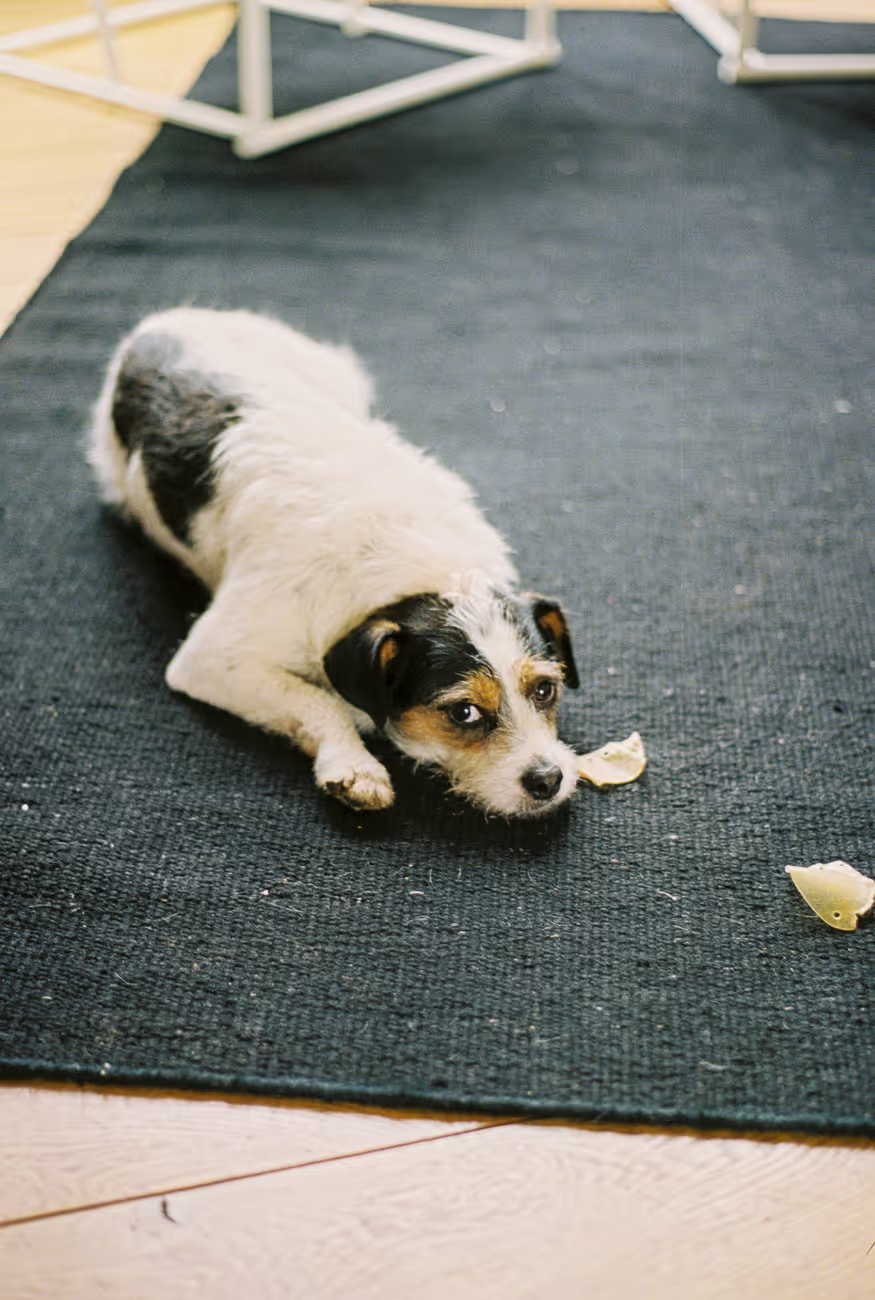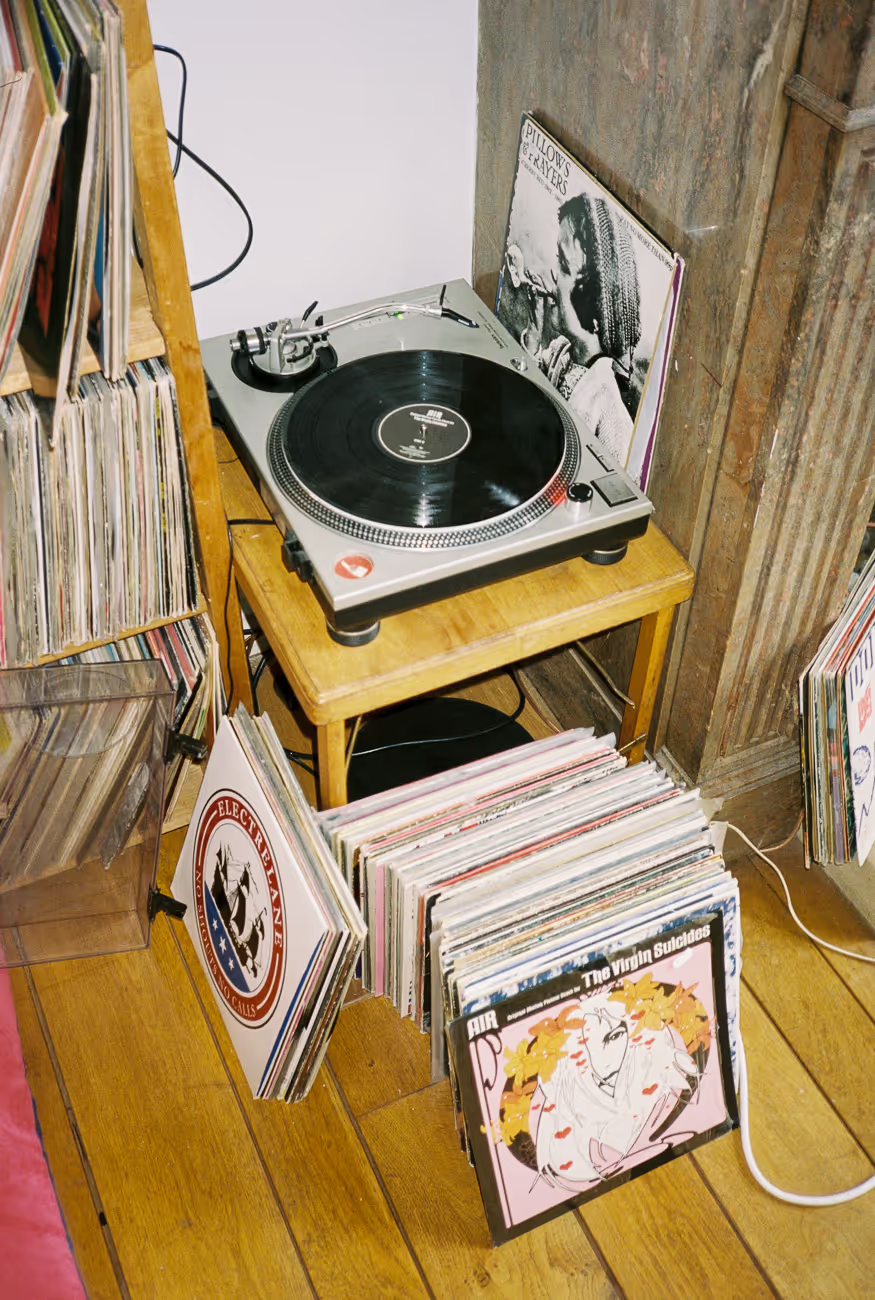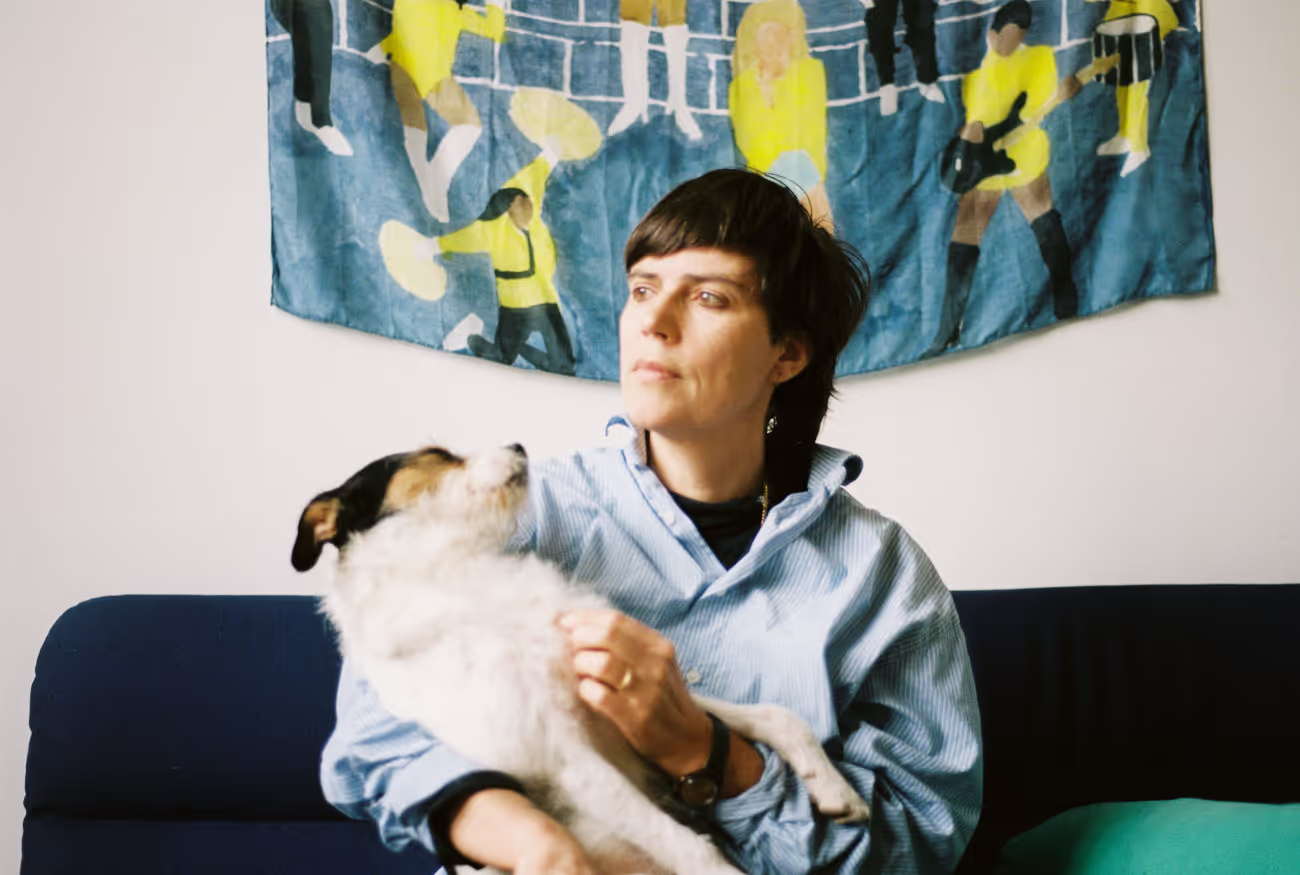





Words by Blurbs
Photos by Lukas Turcksin
Keytrade and Horst share DIY entrepreneurship as a common denominator. With ‘Their Way’ they inspire their shared philosophy through a content series. ‘Their Way’ offers the stories of DIY entrepreneurs at the forefront of art, architecture and music. We delve into the messy, yet inspiring and insightful process of entrepreneurship. We celebrate and feature compelling stories, challenging initiatives and examples of integrity from around the world.
For this month’s feature we met up with Jessica Gysel, writer, activist, and founder of Girls Like Us magazine (a.o.) in her plant-filled period-style Brussels apartment under impressively high ceilings. We discussed the mag’s past and present, Gysel’s many projects, care and inclusivity in both everyday life and clubbing, and how we can work towards a positive (and why not “fluffy”) future; only taking a breather to eat a piece of fruitcake and say hello to Gysel’s partner Katja Mater and their rescue dog Betty.
{{images-1}}
Horst: So kicking off, can you tell us a little bit about yourself and your past?
Jessica : I am Belgian, I was born in Brugge, studied law and communication in Ghent, then worked in Brussels in the 90s at an advertising agency. At the time it felt very conservative, with few opportunities for young people in what was a controlled and hierarchical environment. So I moved to Amsterdam, to an agency specialised in something they called ”scene-marketing” at the time. It was like community or influencer marketing before it existed.
In 2014 I returned to Brussels because it seemed there were more opportunities to really change things, way more than in the Netherlands where everything was more finished. I had lived in Brussels’ Dansaert area for a year in the '90s: I remember all the times I had to run home, being followed by guys. It was really crazy and quite dangerous! So while the city has changed a lot for the better, it's still chaotic today in a way that I like.
Horst: When did you start Girls Like Us?
Jessica : In 2005 in Amsterdam. Before that I had a smaller publication called Kutt (which is Dutch for “cunt”). I feel the magazine has changed so much since the beginning because society has also evolved. I think we have progressed, having started as a mainly lesbian publication to become more queer and trans inclusive.
Horst: Who was in the founding team?
Jessica: Originally it was me and graphic designer Kathrin Hero. Later on, I worked with graphic designer Vela Arbutina on a big redesign and in 2012 Sara Kaaman came on board, which was also the moment we started to invite more people to the editorial team. We’ve progressively grown and today there are six members on the editorial team. I think it's more interesting when you involve more perspectives and include more voices from different backgrounds.
Our editorial structure remains modest and I'm always surprised when the magazine comes out since we do it in our spare time with almost no budget.
I'm like, “Oh my God, we pulled it off again!” We can do this because we have other income, and have the privilege to be able to work in that way. Now that we're asking different people to join, we can't just assume they have the same privilege. We have to really restructure and make sure there are fees for everybody. It would be strange for a feminist queer publication to ask people to work for free.
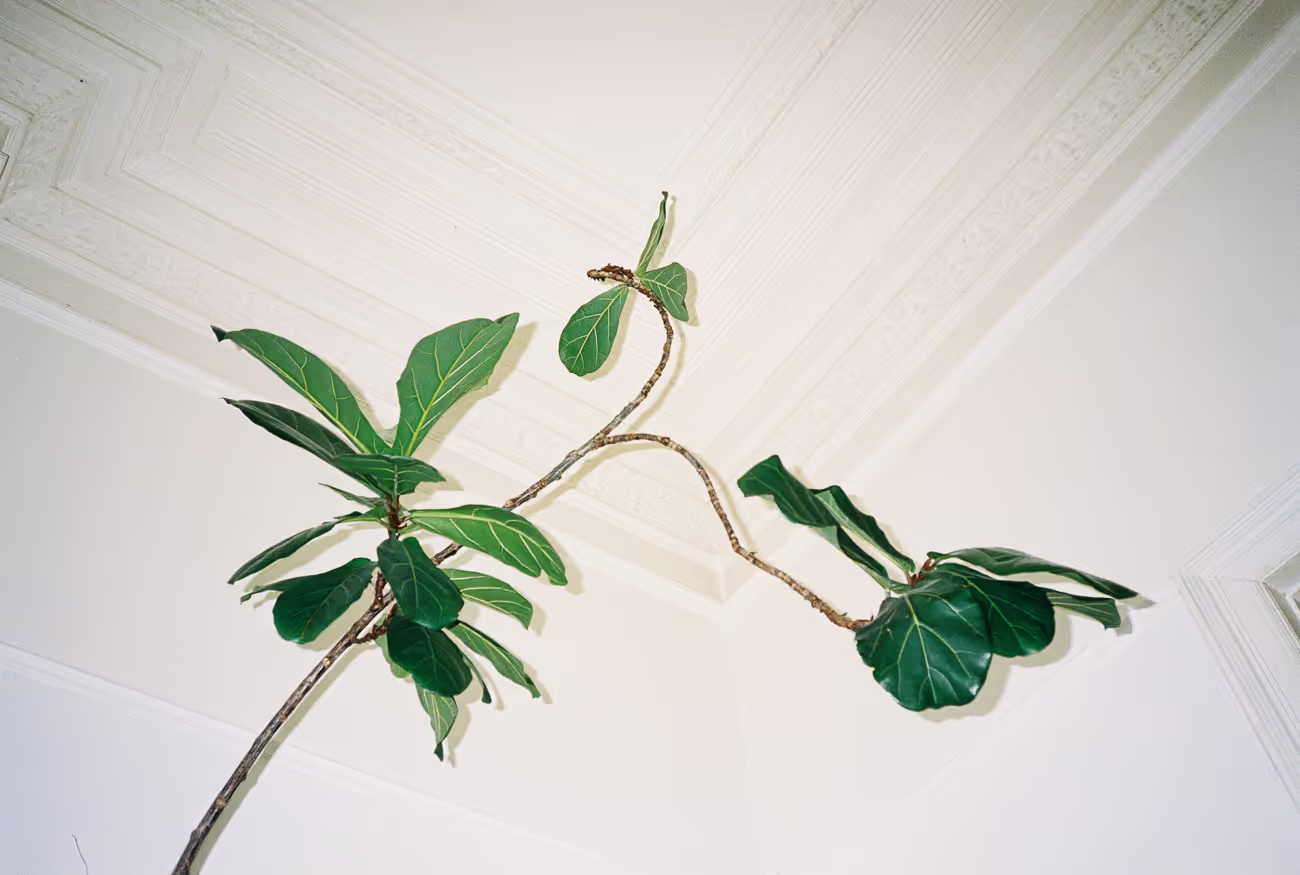
Horst: Do you think Girls Like Us is now considered more of a lifestyle magazine after having started off more militant or activist?
Jessica: I think it was even more lifestyle in the beginning, and it became more activist over the years, or maybe more openly activist. I think making a queer or feminist publication is always political, but I think we were less outspoken back then. The publication also started off as a joke, becoming more and more serious over the years. While maybe not being explicitly activist, we have always featured people that were really trying to change society in one way or another. Perhaps the magazine itself wasn’t militant, but the people in it were definitely activists!
In the beginning GLU was quite small, and gradually I wanted it to be fancier, bigger, and more colorful because I felt like lesbians or queers were super invisible. Of course it's nice to make something “in the margins”, but I really wanted us to have more visibility. When we started, there was no representation and very few magazines. Today I feel like I’d be happy to go back to making something smaller because a lot has changed in the last 15 years.
Horst: Were there any publications, collectives, or people that inspired you to start the magazine?
Jessica: The guys from BUTT magazine were an inspiration for sure, they were the whole reason we started! I liked some publications from the '90s, like Index magazine, a large format publication bringing together mostly unedited interviews. I was also inspired by the earlier issues of Interview magazine. I like the idea of peers talking to each other in an informal exchange, so the interview format was a great place to start.
That said, there are way more other forms of writing in GLU now, but not academic ones, because that's everything we don't want to be! We give space to forms of experimental writing, poetry, diaries, visual essays, and exhibition texts. I think bringing in different layers by playing with the formats has also been part of developing the magazine.
The process is really interesting: You start a magazine out of intuition, then people start to form opinions on what you're doing, and start to theorise it. So with this feedback came the idea that, as a feminist practice, we shouldn't try to reference heteronormative, or mainstream publications too much.
We had freedom to develop different things, but with such freedom comes challenges. It would be totally lazy of us to stick to the interview section only! We’ve also had an archival section since the beginning, having visited a lot of queer archives all over the world.
{{images-2}}
"The magazine is a tool to reach out to and meet others. At one point we did so many parties that sometimes people didn't even know we were a magazine, they just knew the parties!"
Horst: How do you think about the magazine in terms of community building?
Jessica: Community is essential for us. We started GLU before online dating, and I think maybe now people really miss this kind of “old school” way to get in contact with other queers.
For each issue we have launch events, or we would be invited to make an exhibition, or a film program. The magazine is a tool to reach out to and meet others. At one point we did so many parties that sometimes people didn't even know we were a magazine, they just knew the parties!
But the magazine-object is still something I love: it’s both satisfying and encouraging when you go to a book fair and people come to physically thank you for publishing it. When making printed matter you take how and what you are printing into great consideration. I do think a lot of things can live easily online, but I love printed matter. I would never, ever go online only.
Horst: The latest issue, number 13, THE CLUB SCENE, is edited by an external collective called MYCKET. Is this the first time you've had a takeover?
Jessica: It's the second time, the first was by Emma Hedditch with whom we made a large-format issue on the New York dance scene. It was really nice to hand over the publication and say “here, do what you want”.
The three members of MYCKET are academics. So for them, I think it was really fun to also morph research into something more playful, even if there are still footnotes.
The issue brings together their research on the queer club scene in Stockholm, with historical references from other cities, like Paris in the 1920s. It came out in January 2021 during lockdown. We usually do release parties, so for this one we did a launch online. We collectively read the text which was published in the magazine. After that we had a DJ, and then people could stay and dance, it was so much fun, and a bit of relief during the pandemic.
{{images-3}}
Horst: You are also part of another collective, or initiative, called Mothers & Daughters. What is your involvement in that?
Jessica: In 2017 the Beursschouwburg arts centre invited us to contribute to their programme in any way we wished. So I pitched the proposal to the GLU team, and we came up with the idea of doing a lesbian and trans bar called Mothers & Daughters, rather than curating a film program for example. We suggested it to Beursschouwburg, with our own terms: we wanted to bring our own staff, our own drinks, etc. They agreed, and we did three editions of the bar in December 2017. It was a huge success! After the first iteration, we realised it could definitely work and have its own life. So we did it again in 2018. It was founded by Katja [Mater], Marnie [Slater], and myself. For the second edition, eight people were involved, and now there’s 12. So it grows and shrinks, and it’s as a separate entity from the magazine. It’s an independent non-for-profit actually. We will hopefully do a new edition in May 2022 if nothing goes wrong with COVID.
Horst: Would you envision it as a more permanent space, with a fixed team of staff?
Jessica: Rather than a traditional bar, I think we see the function of Mothers & Daughters as a catalyst, or an instigator. With punctual events, we show what's possible and then hopefully other people can get inspired and start their own initiatives. I wouldn’t be against anyone in the team changing it into a permanent affair, but that would be a lot of work! While both are important, to experiment with the idea of what the bar could be is (for me and others) more interesting than just having a physical bar. With permanent things, people become very complacent, spoiled, and bored!
"Rather than a traditional bar, I think we see the function of Mothers & Daughters as a catalyst, or an instigator. With punctual events, we show what's possible and then hopefully other people can get inspired and start their own initiatives."
Horst: What is the current state of the Brussels’ LGBTQIA+ club and bar scene?
Jessica: A lot has changed in the last three years, a lot of new places have opened. I am also part of a project called bad.brussels (Brussels Almanach Dykes). It's an online, open-source map listing queer spaces in Brussels, whether they are permanent or ephemeral ones, currently open ones or more archival entries about historical places that no longer exist. To point out a few: there is rile*, a mostly queer bookstore, and there’s a queer gym called Gyn Tonic. L-Tour do lesbian guided tours, FATSABBATS is a space for and run by queer POC. There’s also the Crazy Circle, a lesbian bar that opened after they were inspired by coming to Mothers & Daughters!
Horst: You recently published a “we want a bar…” manifesto riffing on Zoe Leonard’s poem “I want a dyke for president”. How do you feel about the Brussels scene in terms of inclusivity?
Jessica: Yes, I wrote it with Robin Brettar, who's also part of Mothers & Daughters, for a Flemish publication by C LIEC / buitenhuis exploring how to make Belgium's cultural scene more accessible and inclusive.
Beyond asking for more queer spaces (which is of course always needed) I think there's also a lot other bars can learn from queer projects. For example at M&D we had non-alcoholic nights, non-mixity nights, workshops for POC, or healthcare workshops for specific groups. I still think that people often disregard the need for these kinds of environments.
The buzzword at the moment seems to be “safe space”. We prefer to say ”safer” rather than safe space, because it's always in progress, never finished. We did a podcast (which will be broadcast at the Brussels Podcast Festival in April 2022) called “Places for Pleasure”, offering an alternative to the “safe·r space”. The question is, how can you put things in place to be able to have pleasure? When you feel safe, when basic needs are taken care of, only then you can concentrate on the pleasure.
A lot of our audience have high sensitivity issues; for example I love stroboscopes but for certain people they are physically aggressive. Of course we all want to have “fun” but what is fun for me may not be for you. Amazing fun can be had without alcohol.
I find it sad that even today people still critique Mothers & Daughters using reverse discrimination: “We don’t understand the need for queer-only places, lesbian-only, trans-only, or lesbian and trans-only places” Or “Why am I not welcome?” The fight for “equality” is absurd because such a thing does not exist. It's very layered and complex, and I think straight places can learn a lot from our experiences.
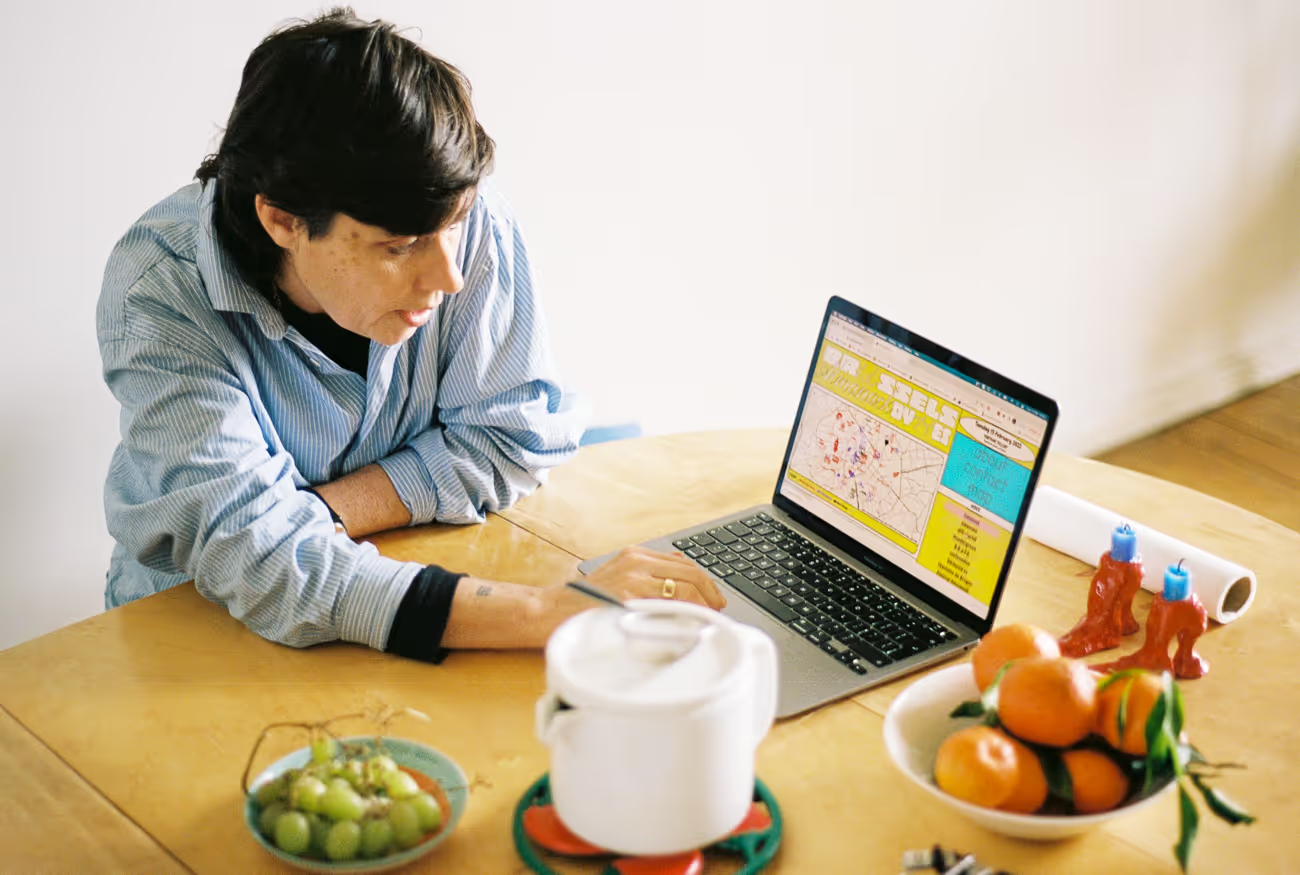

Horst: Mothers & Daughters recently put out an open call for "An exhibition of trans* his/her/theirstories." How will that manifest itself?
Jessica: We previously published a catalogue called BAL — Brussels Almanach Lesbian following an exhibition we did at Mothers & Daughters in 2018.
It brings together information about lesbian bars in Brussels from the past, snippets of lesbian magazines, and lesbian slang, all culled from queer archives. With a bit of hindsight, we saw that this first version was very lesbian, and very white. So the aim of the new open call is to involve trans people with a bit of research background that would be interested in digging into the archives again. However in the official, visible archives there’s perhaps not so much to be found, so I think they will also collect stories elsewhere. This will lead to another exhibition at Mothers & Daughters in May and June 2022.
"My hope for the coming years is that some of these projects lead to a more visible change. Of course I would love more LGBTQIA+ creative spaces and initiatives, but I would also love if the ideas behind them could filter down, slip through into society at large."
Horst: What are the plans for the next issue of Girls Like Us?
Jessica: Since the beginning of COVID, we have been rethinking the whole magazine structure, it was good to take a break and reflect. The pandemic exposed the system behind the publication: with no access to book fairs or book shops or events, we had to rely on online sales. We were lucky because people continued to subscribe and read at home.
We took time to discuss and brainstorm the next theme, which is “Disappointment”. The theme was developed in collaboration with the artist Dora Garcia, who invited us for a workshop at Netwerk Aalst last fall. We happily accepted the invitation and took it as an opportunity to open up the editorial team and make it into a collective healing session which is still in progress.
Hopefully the magazine will be out before summer, but we don't have a regular publishing schedule so it’s hard to say. We are totally on our own time, which alleviates stress, but is sometimes a bit annoying because there's never a deadline and the urge to push things back is very strong.
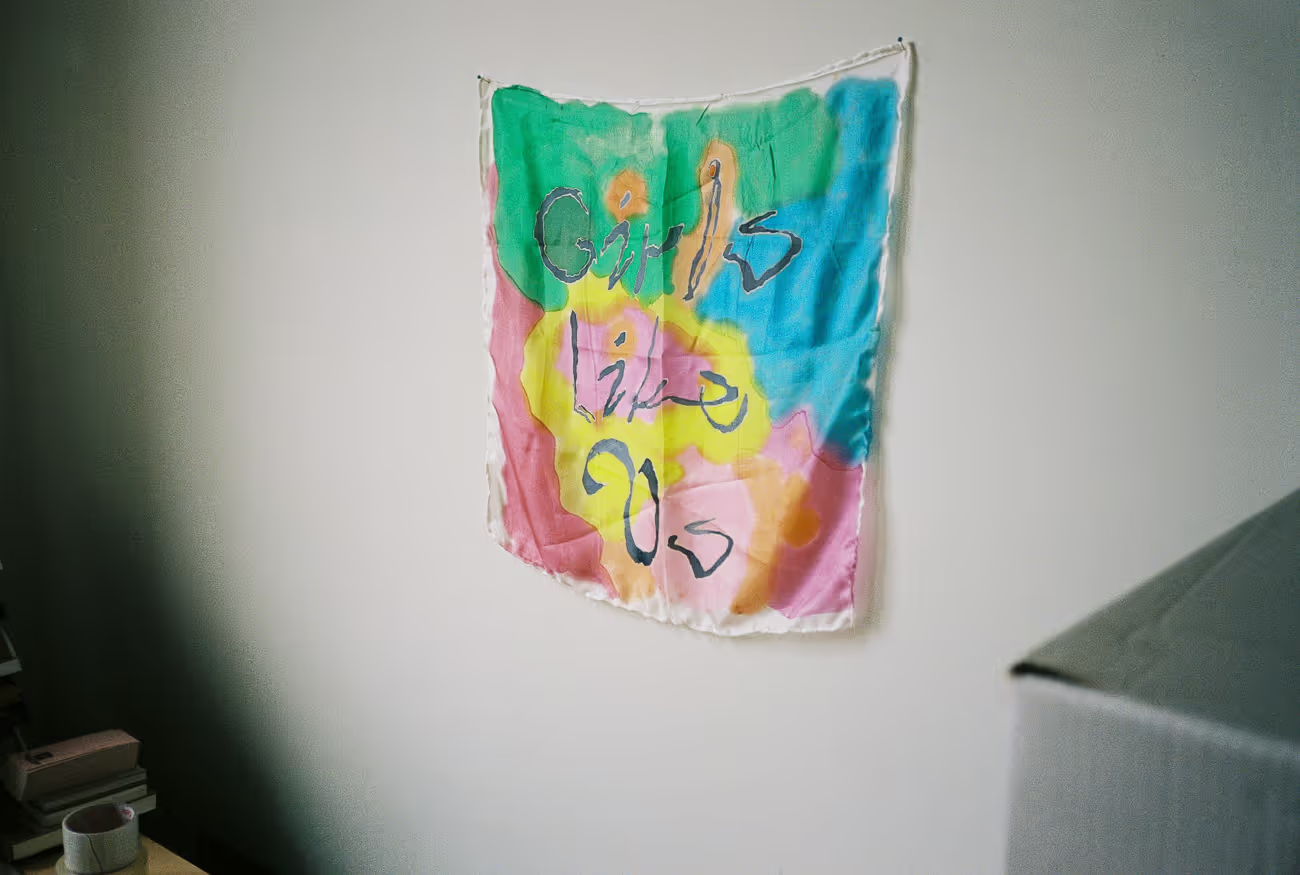
Horst: Where would you like to see yourself, Girls Like Us, or Mothers & Daughters in five to 10 years?
Jessica: My hope for the coming years is that some of these projects lead to a more visible change. Of course I would love more LGBTQIA+ creative spaces and initiatives, but I would also love if the ideas behind them could filter down, slip through into society at large. I’d like to envision a safer, softer, more inclusive future with less violence. In a sense that sounds kind of fluffy, but I really think it’s possible.
Horst: Do you have any words of advice or encouragement for someone who wants to start out in publishing, or organising events, or activism?
Jessica: Just start! People are often hindered by thinking that it’s too difficult. Once you start doing something, people will find you, and people will come and ask for advice or offer you help. I think people make it more complicated than it is. You can start small, you don't have to change the world.
